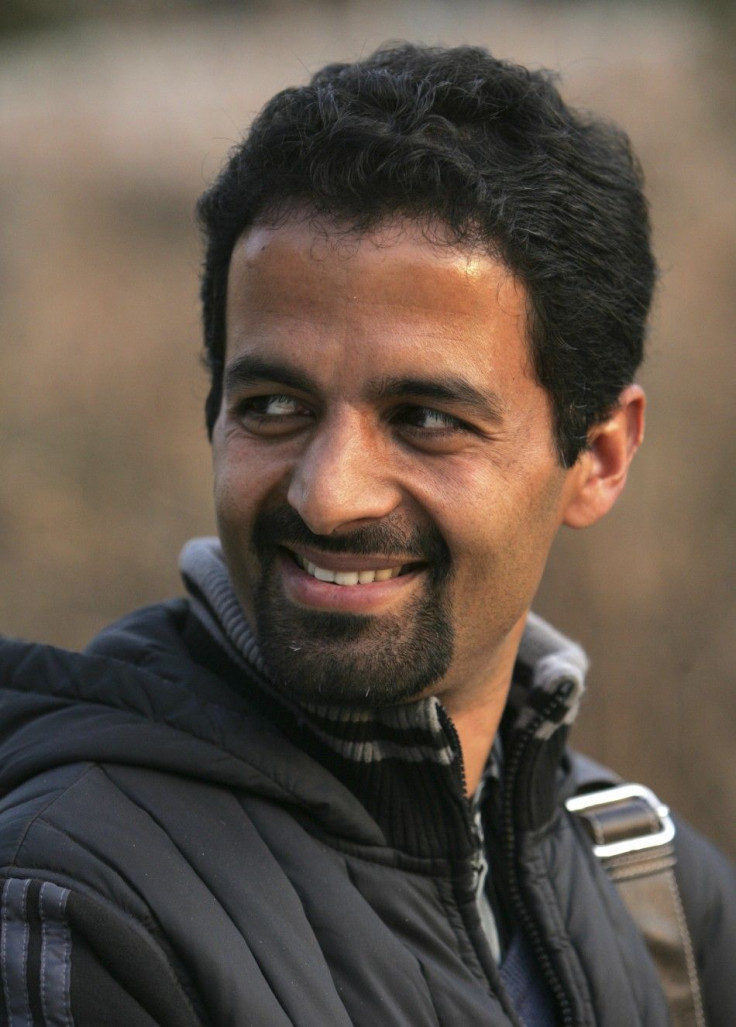Could Nepal Be The Gay Haven Of South-Asia?

The tiny Himalayan state of Nepal, bordered by Asian giants China and India, has arguably achieved what its neighboring nations haven't even thought about: Kathmandu is all set to host the region's first sports competition for the LGBTI (Lesbian, Gay, Bisexual, Transgender and Intersex) community in September.
Sunil Babu Pant, Nepal's first openly gay politician and a member of Nepal's parliament, is at the helm of affairs at the Gay Olympics which will reinforce Nepal's enviable status of being South Asia's most LGBTI-friendly country.
Pant, who engaged in a legal battle in 2007 to ensure equal rights to the gay community of Nepal, says hosting a sports event for gays is important since it needs to be proved that sexual orientation or belonging to the third gender has nothing to do with a person's physical or mental fitness.
An LGBTI sports event is important because we want to prove to the society that we are mentally and physically fit, Pant said in an interview with International Business Times, adding that it is also aimed at boosting self-esteem and the sense of belonging.
Nations, political parties, and society do not take the gay community seriously, and we want to show them that we have tremendous capacity to participate equally in all walks of life including sports, Pant said, who also hopes to enhance the level of government participation in the LGBTI movement by hosting the meet.
There have been numerous cases where winners at sports events, including the Olympics, are stripped of their medals after failing the gender test. While it is necessary for authorities to strictly adhere to the regulations of sports events due to differences in the physical abilities of both genders, the third gender gets sidelined in the process, leaving them little chance to participate in mainstream sports events.
The Australian government is funding the event with 1.6 million Nepali rupees (about $20,000) through its Australian Sports Outreach Program (ASOP).
Pant hit the headlines last week when he wrote an open letter to Facebook founder Mark Zuckerberg and founding partner Chris Hughes appealing that the social network allow its users to list their gender as other.
People who do not identify as male or female continue to be sidelined by Facebook's options, Pant wrote. As you allow users to identify only as male or female, many in the LGBTI community feel as if they are hidden on the site, unable to identify as their true selves.
However, Zuckerberg or the Facebook management has yet to respond to his letter. I haven't had any formal response from the Facebook which is very disappointing, Pant said. LGBTI community, apart from being sidelined politically, socially, culturally and economically is facing a similar fate in the virtual world. With one of the board member himself being a gay person (Chris Hughes), Facebook discounting this community is quite unacceptable, Pant, who maintains a favorable view of Google's open support to the gay community, said.
Pant has since disabled his Facebook account, angered by Facebook's reluctance to add a third gender option. If Facebook doesn't respond, a lot of LGBTI people will switch to other options, he said.
The Supreme Court order of 2007, which ensured equal rights to the gay community, is often misconstrued as the ruling which legalized homosexuality.
However, law experts say Nepal had legalized homosexuality in the 1960s, since the nation's unnatural sex law didn't explicitly state homosexuality in its realm.
Nepal's unnatural sex law never defined unnatural sex in any documents and it didn't actually criminalize any specific acts (such as homosexuality), Kyle Knight, a Fulbright Research Fellow in Kathmandu, said. Most arrests of LGBTI people in Nepal before 2007 were carried out on charges of public indecency, which still occurs today. The legal language which outlawed homosexuality was on the books (in the Criminal Code) in Nepal until 1963, which then disappeared. So, in effect, homosexuality became legal in the 1960s.
Being the founder and director of the LGBTI rights organization Blue Diamond Society, Pant has been actively campaigning for legalizing same-sex marriages and held the first public gay wedding ceremony of Nepal in June 2011 when a lawyer and a college professor from Denver, Colorado, got married in Kathmandu in the Hindu-Nepalese tradition.
However, he feels the legal change is happening at a rather slow pace.
Pant, an assembly member from the Communist Party of Nepal (United), is happy about the media support which facilitates high visibility, while acknowledging that the social attitudes are slowly changing too.
He recently unveiled Nepal's first gender-inclusive public toilet, in a small compound next to male and female public toilets in Bhageshwori Park in Nepalgunj.
For Pant, the construction of the toilet marks a symbolic step forward for the transgender and intersex people who are denied their right to access toilets.
© Copyright IBTimes 2024. All rights reserved.






















